Iran Still Sending Weapons, Drugs To Yemen: US Envoy
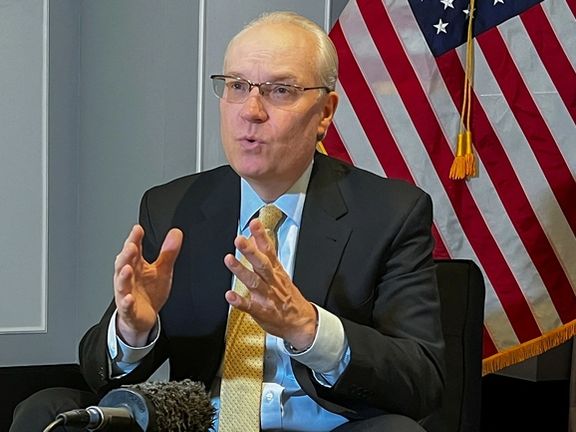
Despite the deal to reestablish diplomatic ties with Saudi Arabia, Iran continues to supply weapons and drugs to fuel the conflict in Yemen, a US diplomat said.

Despite the deal to reestablish diplomatic ties with Saudi Arabia, Iran continues to supply weapons and drugs to fuel the conflict in Yemen, a US diplomat said.
"The Iranians have continued to smuggle weaponry and narcotics toward this conflict, and we are very concerned that this would continue despite the benefits that would come from a Saudi-Iran deal. So, I think that is a space we have to watch," US envoy for Yemen Timothy Lenderking said in a briefing.
The US, British and French navies have captured several shipments of weapons headed from Iran to Yemen in recent months. In February the US military announced the seizure of 3,000 assault rifles, 578,000 rounds of ammunition and 23 anti-tank guided missiles onboard a vessel in international waters.
“Despite the fact that we welcomed an agreement between the Saudis and the Iranians, I remain concerned about Iran’s role,” he said, contending that Tehran has trained Houthi fighters and equipped them “to fight and attack Saudi Arabia.”
Tehran denies arming the Houthis, who seized Yemen's capital Sanaa in 2014 after ousting the government and extending their control over large areas of the country.
The Saudi-Iran deal alone will not end the conflict, which can only be settled through negotiations between the Yemeni sides, Lenderking said.
Iran has been accused of violating UN resolutions by providing drones and missiles to the Houthis to conduct cross-border attacks on Saudi Arabia, but no such attacks have been reported in the last year.
Millions of people are in need of international assistance because of the war, which has killed tens of thousands of people.
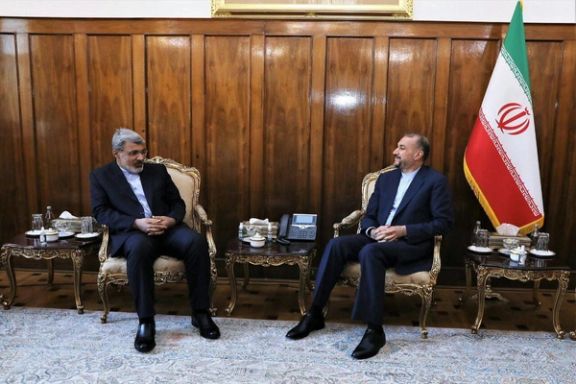
The appointment of Iran's UN ambassador Ali Bahraini to the chair of the UN Human Rights Council 2023 Social Forum has sparked much anger and indignation.
Vaclav Balek, president of the Human Rights Council, said in a statement Wednesday that he had decided to appoint Bahraini following the receipt of a nomination from regional coordinators.
The forum to be held in Geneva on November 2 and 3 will focus on the contribution of science, technology, and innovation to the promotion of human rights including in the context of post-pandemic recovery.
UN Watch launched a petition to the UN Secretary General Antonio Guterres Wednesday to stop the Islamic Republic from chairing the forum and said there were still six months left to cancel the appointment.
The petition has so far been signed by more than 30,000.
In a tweet Wednesday, UN Watch said they sent a letter to US Secretary of State Antony Blinken urging him to condemn the appointment.

Hillel Neuer, executive director of UN Watch, called the appointment “shameful” in a series of tweets and said it is “an insult to the tens of thousands of victims beaten, brutalized, tortured, raped and murdered by this regime.”
“Iran just hanged Yousef Mehrad and Sadrollah Fazeli Zare for using social media to criticize religion,” he pointed out and criticized the US and its allies for not taking action to stop Iran from being elected to the UN Commission on Crime Prevention like they did in the case of Russia in January.
A group of Iranians staged a rally in London Thursday to protest the regime’s executions.
Neuer added that UN Watch will approach governments with a draft resolution for the 53rd session of the UN Human Rights Council to overrule the president's decision to appoint Bahraini if the petition gathers 100,000 signatures.
Headquartered next to the UN human rights apparatus in Geneva, UN Watch is a nongovernmental organization that monitors the performance of the United Nations according to the yardstick of its charter and promotes human rights for all.
“Ali Bahraini is the representative of the leader of the Islamic Republic of Iran, Ali Khamenei. Khamenei stopped millions of covid vaccines from entering Iran which resulted in thousands of deaths. On his orders innocent protesters were shot and more than 500 people, 70 of whom were children, were killed [in recent protests]. This is the same regime that in recent days has executed one person every 6 hours and was condemned by the United Nations Human Rights Council yesterday for its executions,” Iranian protester Vahid Beheshti who staged a hunger strike outside the UK foreign office for over two months and is now in hospital said in a tweet Wednesday.
“How dare you to insult the people of Iran like this assuming they are ignorant?” he asked the UN Human Rights Council.
The UN’s Third Committee, also known as the Social, Humanitarian and Cultural Committee or C3, approved a draft resolution on Iran’s human rights situation on November 16 and expressed concern at the alarmingly high frequency of the death penalty in the country. The motion was ratified by a recorded vote of 80 in favor to 28 against, with 68 abstentions.
The Islamic Republic was also voted out in December from the UN Commission on the Status of Women (CSW) for policies contrary to the rights of women and girls. The resolution passed against Iran was drafted by the US due to the regime’s bloody crackdown on protests ignited by the death of a young woman in custody of hijab – or the so-called “morality” -- police.
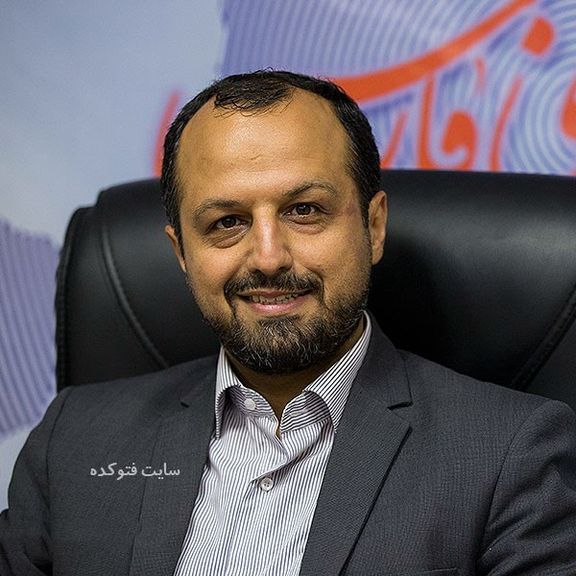
A senior Iranian official visited Saudi Arabia for the first time since Riyadh and Tehran agreed to resume diplomatic relations.
Economy Minister Ehsan Khandouzi led an economic delegation to Jeddah, holding bilateral meetings with Saudi officials and talks with the Islamic Development Bank during his stay.
Saudi government officials, Islamic Development Bank officers, and Iranian consulate staff welcomed him at King Abdulaziz International Airport in Jeddah.
In March, a China-brokered agreement restored diplomatic relations between Iran and Saudi Arabia, and Khandouzi is the first Iranian official to visit Saudi Arabia since then.
After pro-regime protesters attacked Saudi Arabia's embassy in Tehran and consulate in Mashhad in 2016, Saudi Arabia severed ties with Iran.
According to Iran's state news agency IRNA, Iranian Foreign Minister Hossein Amir-Abdollahian said Saudi Arabia had introduced its new envoy to Tehran, and Iran will "soon" introduce its new envoy to Riyadh.
Farzad Piltan, West Asia director at Iran's Trade Promotion Organization, said that the country was eyeing $1 billion in trade with Saudi Arabia, which could be expanded to $2 billion with a focus on steel, saffron, carpets, cement, dried fruit, and so on.
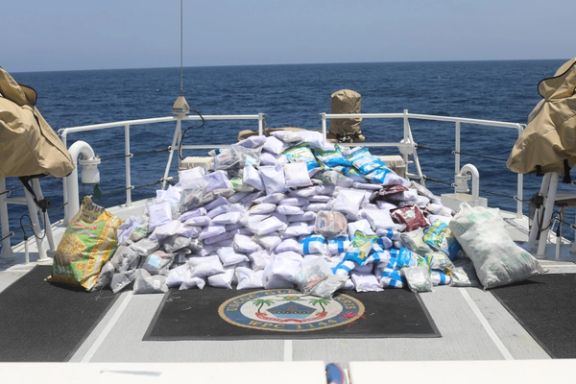
The US Coast Guard has seized $80 million worth of heroin from a fishing vessel transiting the Gulf of Oman on Wednesday.
US Central Command said on Thursday that USCGC Glen Harris was operating in support of the Combined Task Force when a team discovered 1,964 kilograms of heroin on a vessel transiting international waters after departing Chabahar, Iran.
The team also seized $30 million worth of methamphetamine and heroin two days ago from another fishing vessel that departed the same port. So far this year, the navy's Combined Task Force 150 has seized illegal narcotics worth $200 million.
“I’m very proud of my crew and all we’ve been able to accomplish as a team this week,” said Lt. Nick Jabs, Glen Harris’s commanding officer. Glen Harris cutter, a Sentinel Class ship, arrived in the region last year and is capable of intercepting drugs smuggled by boat.
“We’re out here to work with regional partners and disrupt any destabilizing maritime activity at sea. We will continue getting after it.”
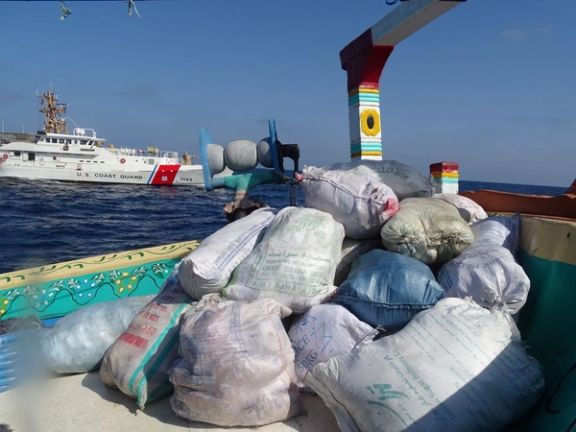
An earlier seizure on May 8 resulted in the seizure of 580 kilograms of methamphetamine and 35 kilograms of heroin in Glen Harris's possession.The destination of the shipment has not yet been disclosed.
Earlier this week, Jordan carried out rare air strikes on southern Syria, hitting a Iran-linked drugs factory and killing a smuggler allegedly behind big hauls across the two countries' border.
The sources said one strike hit an abandoned drug facility in Syria's southern Deraa province linked to the Iran-backed Lebanese group Hezbollah, which is allied to Syria's government.
In recent years, Iran has been accused of using its proxies in Iraq, Syria, Lebanon and Yemen to transport illicit narcotics.
According to the US State Department’s 2022 International Narcotics Control Strategy Report, Iran is a significant transit and destination country for opiates, cannabis products, and methamphetamine, the vast majority originating in Afghanistan.
“Some corrupt Islamic Revolutionary Guard Corps personnel reportedly facilitate illicit drug smuggling or profit from the drug trade,” adds the report.
An estimated 9,000 metric tons of drugs pass through Iran annually, according to Iranian press reports. There was a notable increase in drug seizures and violent incidents along the Iran-Azerbaijan border in 2021.
The Iranian government has been accused of using its proxies to smuggle drugs into other countries for a variety of reasons. The most common reason is to fund its own activities, such as its support for the Syrian government and its involvement in the war in Yemen.
The Iranian government has been accused of using its proxies to smuggle drugs into other countries in order to destabilize them and gain political leverage.
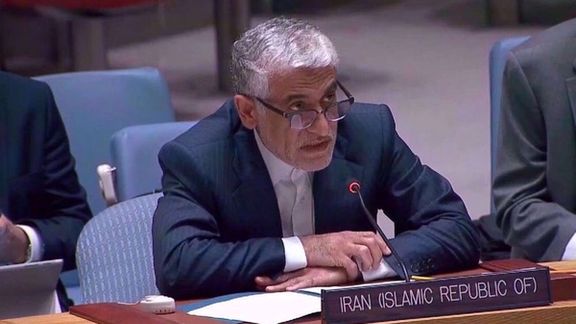
Iran has stressed its right to retaliate against any Israeli action on the country’s nuclear program, threatening to hold the US accountable.
In a letter Tuesday, Iran's permanent representative to the UN, Saeid Iravani, made the comments to UN Secretary-General Antonio Guterres and the Security Council's president.
The ambassador's threats came after US National Security Advisor Jake Sullivan said Washington stood ready to do whatever it could to prevent Iran from acquiring a nuclear weapon and that "freedom of action" was given to Israel.
Sullivan, speaking at the Washington Institute for Near East Policy, said last week that: “We have made clear to Iran that it can never be permitted to obtain a nuclear weapon. As President Biden has repeatedly reaffirmed, he will take the actions that are necessary to stand by this statement, including by recognizing Israel’s freedom of action.”
The Iranian diplomat in his letter called the remarks by Sullivan “irresponsible, provocative, and belligerent” that violates international law and the United Nations Charter “as it threatens to use force against the peaceful nuclear facilities of a Member State of the United Nations.”
The letter said the statement “implies the United States’ potential complicity in any future acts of terrorism or aggression carried out by the Israeli regime against Iran, including against its peaceful nuclear facilities.”
Undeterred, he said Tehran “reserves its inherent and legitimate right under international law to take all necessary measures to protect and defend its citizens, interests, installations, and sovereignty against any aggression, including any terrorist, military, or sabotage acts.”
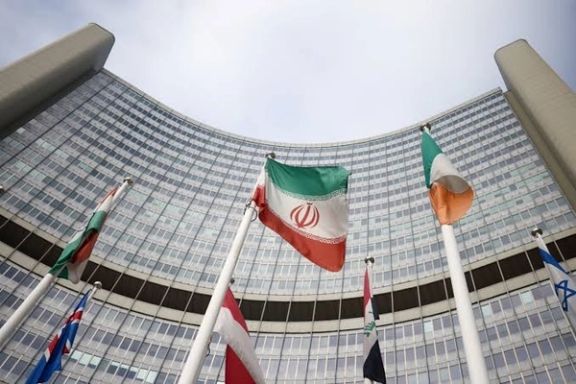
A former Iranian diplomat says Tehran may have concluded that it should replace idealism with pragmatism to end the long-standing impasse in its foreign policy.
At the same time, a reformist commentator in Tehran has also said that it is essential for Tehran to reform its foreign policy as a precondition to attract foreign and domestic investment.
Hojjatollah Joudaki, a former Iranian diplomat in Egypt, told Etemad Onlinethat a recent trend of changing tens of street names in Tehran could be the first move in the interest of pragmatism.
Iran had named many streets after terrorist figures such as Khaled Eslamboli, the man who assassinated President Anwar Sadat for giving asylum to the Shah of Iran. The street's name was changed following the resumption of ties with Saudi Arabia in anticipation of further extending the regional rapprochement.
The interview with Joudaki coincided with media reports indicating that talks took place between Iranian and Egyptian officials in Oman.
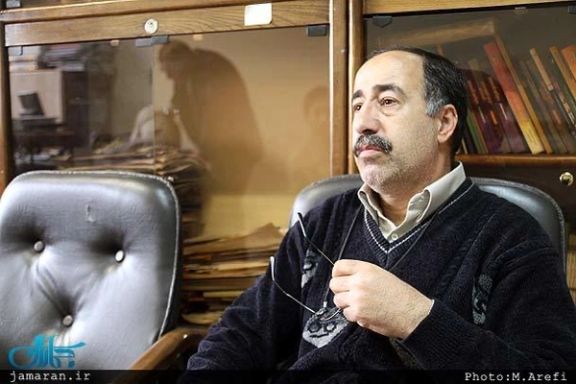
Joudaki argued that the hard core of the Iranian regime might have finally noticed the Islamic Republic’s isolation in the region.
He claimed that the resumption of Iran's ties with Egypt was hindered by the United States and Saudi Arabia. Now that Iran has made peace with Saudi Arabia, it is time to think of resuming the ties between Tehran and Cairo. He added that hardliners who were against restoring ties with Egypt also think that maintaining relations with Cairo and other regional capitals could help Iran to surmount its economic problems.
"While there seems to be no hope in the revival of the JCPOA, one solution for Iran could be restoring its ties with its neighbors and regional states," said Joudaki, adding that Iranian leaders have concluded that it is advantageous to end their international isolation. He added that the pressure groups who prevented better relations with Iran's neighbors are still there, but they have realized what have they done to the country.
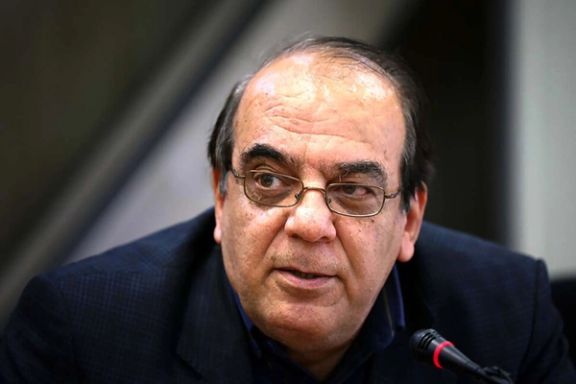
Meanwhile, in a commentary in Etemad daily, reformist commentator Abas Adi wrote: "reforming Iran's foreign policy is a must. Without solving the problem of [nuclear accord] JCPOA and maintaining stable foreign relations, it is not possible for Iran to attract any domestic or foreign investment."
Abdi wrote that Supreme Leader Ali Khamenei's plan for the current year, that is "harnessing inflation and boosting production" requires large investments that would facilitate the 8 percent economic growth envisaged by Khamenei." He wrote, "This can be made possible only through restoring the country's infrastructure. But if you ask me, the key here is prioritizing domestic investment over foreign investment."
Abdi’s preference for domestic investment is a more practical approach, as he probably knows that Tehran is not inclined to improve relations with the West, which could unblock foreign investments.
"At the same time, we need to look for foreign investment. But the reason for prioritizing domestic investment is that domestic capital is either invested in non-productive areas or is exiting the country."
Abdi added that priority should be given to the private sector as the government lacks the resources for investment.
He further pointed out that Iran needs to remove major obstacles such as the state-controlled banking system, instability in policymaking, financial corruption, and the absence of free media. All of these are obstacles to an efficient economy with inflation and economic growth, Abdi said.